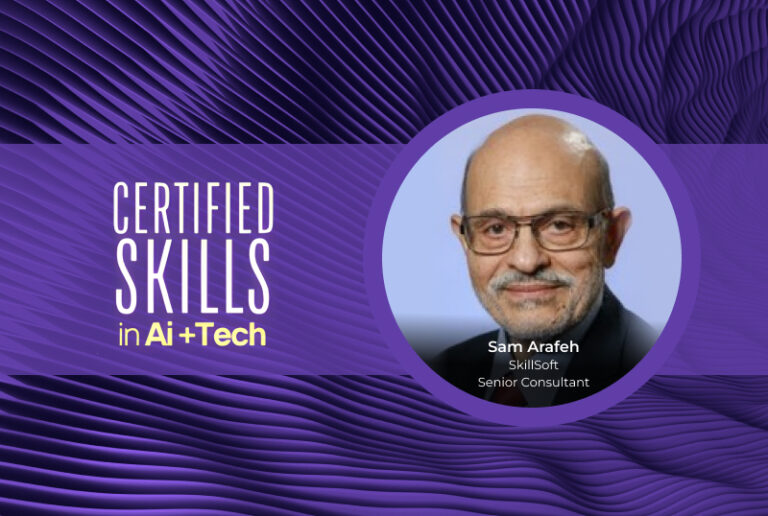In the latest episode of the Certified Skills in AI and Tech podcast, Dr. Sam Arafeh, Senior Consultant at SkillSoft and a seasoned strategist in digital transformation, joins the conversation to explore AI’s impact across business, technology, and the modern workforce. With over 50 years of experience in AI and optimization, Dr. Arafeh’s career spans academia to advisory roles with major organizations, providing him with a unique perspective on the rapid evolution of AI and its implications for today’s professionals.
Tracing the Evolution of AI: From Theory to Practice
Dr. Arafeh begins by reflecting on AI’s journey, sharing how the field has grown from foundational theories in the 1600s to the sophisticated applications we see today. His early academic work in systems engineering focused on optimization—a theme he carried into roles with companies like Rockwell and utilities such as Pepco, where he designed automated systems to stabilize Washington, D.C.’s power grid. “AI has moved from mathematical concepts to a tool that truly extends human potential,” Dr. Arafeh notes, emphasizing that today’s AI tools bring vast data resources and advanced algorithms to tackle tasks once constrained by limited computing power.
According to Dr. Arafeh, AI’s current growth is driven by data and processing power. The exponential increase in data—what we now call “big data”—has enabled AI to scale across industries. He highlights that AI’s purpose extends beyond automation; it’s about emulating and enhancing human intelligence. “AI, when used effectively, empowers people to work faster, more efficiently, and with greater insight,” he explains.
Embracing Reskilling and Lifelong Learning
With AI transforming the landscape of job roles, Dr. Arafeh emphasizes the importance of reskilling. He notes that while younger professionals can benefit from formal education, seasoned professionals should focus on continuous learning to stay relevant. Having recently completed an executive AI program at MIT, Dr. Arafeh practices what he preaches: “Adaptability is essential; AI tools empower those who know how to use them.”
He encourages all professionals to not only embrace new skills but also learn how to leverage AI tools that boost relevance in a fast-evolving market. Dr. Arafeh acknowledges the abundance of available resources, many of which are free, that enable professionals to learn AI fundamentals and apply these concepts in their roles. “AI has democratized learning,” he adds, “allowing people to advance regardless of age or background.”
The Role of AI in Optimizing Business and Society
Dr. Arafeh offers a unique perspective on AI’s societal role, advocating for a balanced approach to AI-driven optimization. While AI has the potential to streamline operations and boost productivity, he emphasizes that human judgment must remain central. Reflecting on his work in automated control systems, Dr. Arafeh warns of the importance of oversight, particularly in high-stakes environments like energy grids. “AI should work alongside human expertise, with safeguards in place to prevent errors,” he advises.
He views AI’s role as one of support, not replacement, noting that AI augments human capabilities rather than eclipsing them. This collaborative approach aligns with Dr. Arafeh’s faith-driven view on technology’s limitations. While AI has the potential to transform industries, it is ultimately a tool that should work within human-defined boundaries.
AI’s Future and the Importance of Certification
Dr. Arafeh stresses the importance of certifications and credentials in an evolving workforce. “Formal education and industry certifications create standards that allow employers to assess skills effectively,” he explains. In a world where anyone can claim expertise, certifications offer a structured way to validate knowledge and skills.
He encourages professionals at all stages to seek credentials that demonstrate their AI proficiency, whether through degree programs or industry-recognized certifications. His perspective underscores a broader shift from traditional degrees to skill-based hiring, a trend which AI is accelerating by enabling precise assessments of candidates’ capabilities.
Final Thoughts: The Human Element
Dr. Arafeh’s insights provide a roadmap for navigating AI’s expanding role in business and technology. He encourages professionals to embrace continuous learning and credentialing, which are essential in a world where AI is increasingly embedded in every industry. His message is clear: those who adapt and acquire AI skills will be better positioned to thrive in the workforce of the future.
As AI advances, Dr. Arafeh reminds us that the goal isnot to replace human intelligence but to extend it. Tune in to this episode of the Certified Skills in AI and Tech podcast to gain a deeper understanding of AI’s trajectory and practical steps for adapting in a rapidly changing tech landscape.
About Kryterion Inc.
Kryterion Inc. is a global leader in innovative testing and credentialing solutions, empowering organizations across various sectors to develop and manage their assessments with our advanced test development platform and multi-modal delivery solutions. Established in 2001, Kryterion offers secure, integrated services and extensive support, enabling candidates to demonstrate skills and build world-class careers.
Ready to take the next step to start or grow a program for your organization? Click here to connect with a Kryterion expert.






